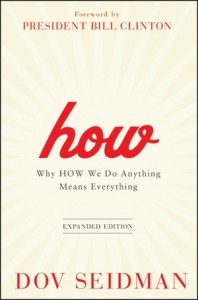Church

From time to time I revisit the question: Why are young adults walking away from religion?
Although the answer(s) vary from person to person, there are some general trends that I think apply in most cases. (In the list below, when I refer to “we,” “I” or “me,” I’m referring to younger adults in general, and not necessarily myself.)

“Church folks are just too political!”
When people are asked why they have decided to leave the church, this has become an increasingly popular response. And, sadly, it is a particularly popular response for those in the 18-29 year old demographic. That we Christians have allowed ourselves to become too political and too partisan is a major contributor to the decline of the church.
Partisanship and its corrosive effects are not a new thing to the culture at large. However, more and more that cultural partisanship is infecting the church and gnawing away at the bonds which are supposed to hold them together. In the process, the church gets hijacked and redeployed for partisan ends, leaving those expecting better from the church disappointed.
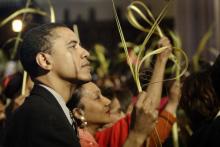
Editor’s Note: At 3:30 p.m. on Saturday, March 27, 2004, when I was the religion reporter for the Chicago Sun-Times, I met then-State Sen. Barack Obama at Café Baci, a small coffee shop at 330 S. Michigan Avenue in Chicago, for an interview about his faith. Our conversation took place a few days after he’d clinched the Democratic nomination for the U.S. Senate seat that he eventually won, and four months before he’d be formally introduced to the rest of the nation during his famous keynote speech at the 2004 Democratic National Conventio.
We spoke for more than an hour. He came alone. He answered everything I asked without notes or hesitation. The profile of Obama that grew from the interview at Cafe Baci became the first in a series in the Sun-Times called “The God Factor,” which would eventually became my first book, The God Factor: Inside the Spiritual Lives of Public People, in which Obama and 31 other high-profile “culture shapers” — including Bono of U2, Nobel Laureate Elie Wiesel, the author Anne Rice and President George W. Bush's speechwriter Michael Gerson — are profiled.
Because of the seemingly evergreen interest in President Obama’s faith and spiritual predilections, and because that 2004 interview remains the longest and most in-depth he’s granted publicly about his faith, I thought it might be helpful to share the transcript of our conversation — uncut and in its entirety — here on God’s Politics.
~ Cathleen Falsani
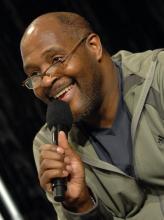
NEWARK, N.J. — Grammy Award winner and longtime family friend Marvin Winans will deliver the eulogy for Whitney Houston during her funeral Saturday (Feb. 18) at the New Hope Baptist Church in Newark, the church pastor said Tuesday night.
Houston’s family rejected a public final farewell to the pop icon, choosing instead to hold a private, invitation-only funeral at New Hope, the singer’s childhood church, which seats about 1,500. The Rev. Joe A. Carter, pastor at New Hope Baptist Church, said he will officiate the service, scheduled to begin at noon. Houston was born in Newark and raised in nearby East Orange.
Winans, who also serves as the lead pastor at Detroit’s Perfecting Church, told the Detroit Free Press that he felt like he had lost a sibling when he learned the 48-year-old singer had died Saturday in Beverly Hills, Calif.
Houston’s mother, gospel singer Cissy Houston, her cousin Dionne Warwick, and other family members gathered at Whigham Funeral Home in Newark well into the early morning hours Tuesday to shape plans for the service, funeral director Carolyn Whigham said.

Usually when I hear people talk about finding the good in the midst of a difficult situation, my cynical radar goes up. I picture the scene in Monty Python’s Life of Brian where Brian and the two thieves are being crucified while whistling and singing “Always look on the bright side of life.”
Yeah, right.
I reminds me a girl named Cathy that I knew in high school who already lived on her own before she had even graduated. At school she was the perpetual ray of sunshine, always offering warm smiles and hugs, but hardly concealing a deeper undercurrent of sadness that you could nearly taste.
But once in a while, we have an opportunity to catch a glimpse of grace in the middle of the worst humanity has to offer. And it’s in those moments that I tend to recognize God in our midst.
Imagine this scenario occurring in your workplace. It’s your company’s annual corporate retreat, and in a misguided attempt to inject humor into the event, your leaders present a skit in which they all pretend to be disabled in some way.
They hobble around with awkward positions, as if paralyzed or unable to use particular limbs; they exaggerate their speech and behavior to grossly characterize those who have communication difficulties, and all these representations are done in a mocking and demeaning way, to garner a few laughs.
No modern-day corporation would do this. And yet, in the context of Christian organizations and churches, similar situations still occur.
We recently witnessed a sermon video in which the pastor of a large, multi-site church in Minnesota brought an Asian man on stage representing a “samurai” and had him sit before the congregation, stone-faced and silent, while the pastor flailed his arms in a cartoonish imitation of karate moves while yelling random Asian-sounding gibberish, then banged a loud gong in an attempt to rattle the “samurai’s focus.”
Widow, Queen, Lover, Warrior; Faith in the Struggle; The Message; ‘Do Not Cast Me Away.’
There are many things they seemed to hold in common, not least an instinctive nonviolence, contrasting so sharply with the police, who so often let the logic of force drive their actions (they found out, as often in history, that the logic that works with criminals doesn’t really apply to idealists).

The legacy of Martin Luther King, Jr., and the reality of climate change are both victims of western culture’s remarkable capacity to accommodate and neutralize that which is most critical of it.
Early in the civil rights movement, Bayard Rustin said to King, “I have a feeling that the Lord had laid his hand upon you. And that is a dangerous, dangerous thing.” Similarly, the FBI once described Martin King as the “most dangerous man in America” – and yet, as Martin Luther King Jr day rolls around again in the United States, we are often presented with a figure that seems more like a cheerleader for the status quo rather than a prophetic challenge to it. Somehow, it seems we have made this dangerous figure very safe.
For instance, in a speech at the Pentagon commemorating King’s legacy, the Defense Department’s general counsel Jeh C. Johnson remarked, “I believe that if Dr King were alive today, he would recognize that we live in a complicated world, and that our nation’s military should not and cannot lay down its arms and leave the American people vulnerable to terrorist attack.”
But to claim that Dr King would be pro-war today is as likely as him being pro-segregation. After all, this is the Dr King who said, “A nation that continues year after year to spend more money on military defence than on programs of social uplift is approaching spiritual death.” And this is the same Dr King who said in his speech on 4 April 1967 (a speech that turned three quarters of American public opinion against him), “To me the relationship of the ministry [of Jesus Christ] to the making of peace is so obvious that I sometimes marvel at those who ask me why I’m speaking against the war.” And this is the same Dr King who said, the night before he was murdered on 4 April 1968, “It is no longer a choice, my friends, between violence and nonviolence. It is either nonviolence or nonexistence.”

Are you a Christian who spends a lot of time online? Then perhaps you've heard of Jeff Bethke. Bethke, aka bball1989, is a spoken word poet whose rhymes and videos are capturing the attention of thousands of Christians across the web.
His latest video is going viral among online Christian communities. Provocatively titled “Why I Hate Religion, But Love Jesus,” the poem is a unique fusion of prophetic criticism, personal testimony, and a call to action.
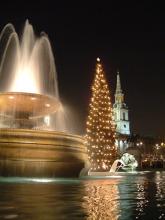
I’m not sure we can quite get our heads around the latest ‘war’ being waged in the United States – the ‘war on Christmas’.
Visions of the 101st Airborne heading towards the North Pole abound. Anti-reindeer defense weapons, covert elf anti-merriment operatives and a unilateral ban on all copies of A Christmas Carol (in its various media iterations)? Is that what we have come to?
Surely — and thankfully — not, but given some of the rhetoric that is thrown around in the media at this time of year, you might be forgiven for thinking so!
Given that most reporting about religion in the UK and Europe usually includes the phrase “an increasingly secular country," you might think that the "war on Christmas" back on the old sod is even more sustained and sophisticated than in the United States.
Picture heavily fortified nativity scenes being assaulted by atheist flash mobs chanting “HAPPY HOLIDAYS!” if you will.
Well, I’m sorry to tell you that I’ve yet to witness such a terrifying scene on the streets of London.
Lowes pulled its ad dollars from a show that aims to tighten the tapestry we call America because of a faux controversy drummed up by a hate group that said, through its claims of “propaganda," that it's not possible for Muslims to be American.
But the fabric of our nation exists because of the genius of our nation’s founder, who, in the very first amendment to our Constitution, protected the integrity of religion by forbidding the establishment of any one religion as the religion of the state.
In every single society before the founding of our Union, religion and state were married. History has taught us that religion co-opted by the state loses its integrity and its prophetic power.
Ours was a grand experiment that built America into a grand tapestry of ethnic and religious groups that thrive side by side in relative peace—more so than in any other nation in the world.
Self-identifying as an Evangelical might get me labeled a political activist. Yes, I’m an Evangelical. I’m also a Republican. But touching these two labels together invokes pictures of voting checklist guides, culture wars, and the case of Visine needed to make Michelle Bachmann eyes blink. I‘m not a militant, taking the country back for God.
So am I an Evangelical? Did you know that the family name is actually Swiss-German? That explains our passive-aggressive nature.
The term "Evangelical" is like a pair of hand-me-down underwear. It's been stretched over so many shapes and sizes that it's lost its snap and doesn't fit anyone anymore. It’s been pulled around the circumference of Mars Hill, Seattle and Mars Hill, Grand Rapids. Billy Graham, Ted Haggard, Jim Bakker, Jay Bakker Benny Hinn, Scot McKnight, Don Miller, Jimmy Carter, W., John Piper, Ken Ham, Jim Wallis, and Bill Hybels have all had their turn sporting this hand-me-down garment.
Ask me if I’m an Evangelical and I’ll ask if you know where that label’s been. It’s rubbed against far too much junk for my taste.
Words lose their currency with overuse, it’s true. But it’s also true that a large part of my issue with being labeled an Evangelical is vanity.

The Defining Issue Of The 2012 Presidential Race?; We've Got Christmas Wrong, Think Tank Reveals; Interracial Couple Banned From Kentucky Church; In Pictures: How Many Adults Believe In God?; Why Has Inequality Gone Up So Much?; New Bible Includes the Word "Immigrant," Brings Moral Clarity; Sacrifice Yourself To The Golden Calf Of Capitalism.

You need to read God in a Brothel because:
- 30 million people are enslaved around the world,
- It’s a $32 billion industry per year,
- 2 million children are enslaved in the sex trafficking industry,
- 100,000 of these children are living right here, in the United States.
The sex trafficking industry would not exist without the demand for commercial sex that flourishes worldwide.
The church played a central role in the Civil Rights and anti-apartheid movements. Now the church has the power -- and the responsibility -- to fight human trafficking with all of its rich resources.
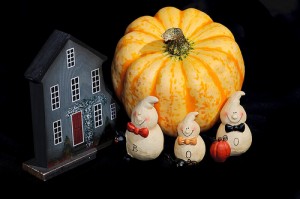
Is Halloween a prime time for evangelism?
Are religious tracks passed out along with (or in lieu of) "treats" really the best way to spread the gospel message?
Or do the roots and practices of Halloween run so deeply counter to Christian tradition that Halloween is best ignored by believers?
At times such as these, the church often finds itself wrestling with the big question H. Richard Niebuhr posed in his seminal 1951 work, Christ and Culture. That is, to what extent should Christians engage in and interact with the world around them?
What was most telling about the disagreement between the two men was their discussion of Luke 4. Mohler argued the passage should be understood in light of how he interpreted the preaching and teaching of Paul and the other apostles. This means that when Jesus said that he came to bring good news to the poor that good news was personal salvation.
Wallis argued that yes, personal salvation is one part of that good news, but that the other part is the Kingdom of God breaking into the world and transforming societal relationships as well. When the Gospel is proclaimed, it is good news for a poor person's entire being, community and world -- not just his or her soul.
First, it was encouraging to hear Mohler spend a lot of time emphasizing that working for justice is essential to fulfillment of the Great Commission. Throughout the night he repeated his concern that a lot of Churches are REALLY bad at making disciples who actually do the things Jesus told us to do. As the president of one of the largest seminaries in the world, it will be interesting to see if he is able to train a generation of pastors who will do things differently. My concern is that he is missing the connection between his theology and the failure of Christians to actually do justice.
Baby steppin': Economy grew 2.5 percent in the third quarter. Democrats first offer: $3 trillion for debt. Immigration is a faith issue. Harsh rhetoric to derail the GOP? The canon of St. Paul's Cathedral in London resigns over plans to evict Occupy London protesters. Elizabeth Warren and the #OccupyWallStreet election test.

When I applied for a job at CNN in the 90s, and told the interviewer that I had interned with an evangelical magazine called Christianity Today, his response was, "If it's Christian, it isn't journalism."
Over the years that expanded to, "If it's evangelical, it's Republican. Or Jerry Falwell. Pat Robertson. The Tea Party. Wrapped in a Patriotic Flag. White People. Derivative, cheesy music. Big Money. Big Hair." Fill in the rest of the blanks.
Are those labels a distortion of what it means to be an evangelical? Of course they are. Yet they are how evangelicals are perceived, rightly or wrongly (I personally think it's a mixture of both), in our society.
